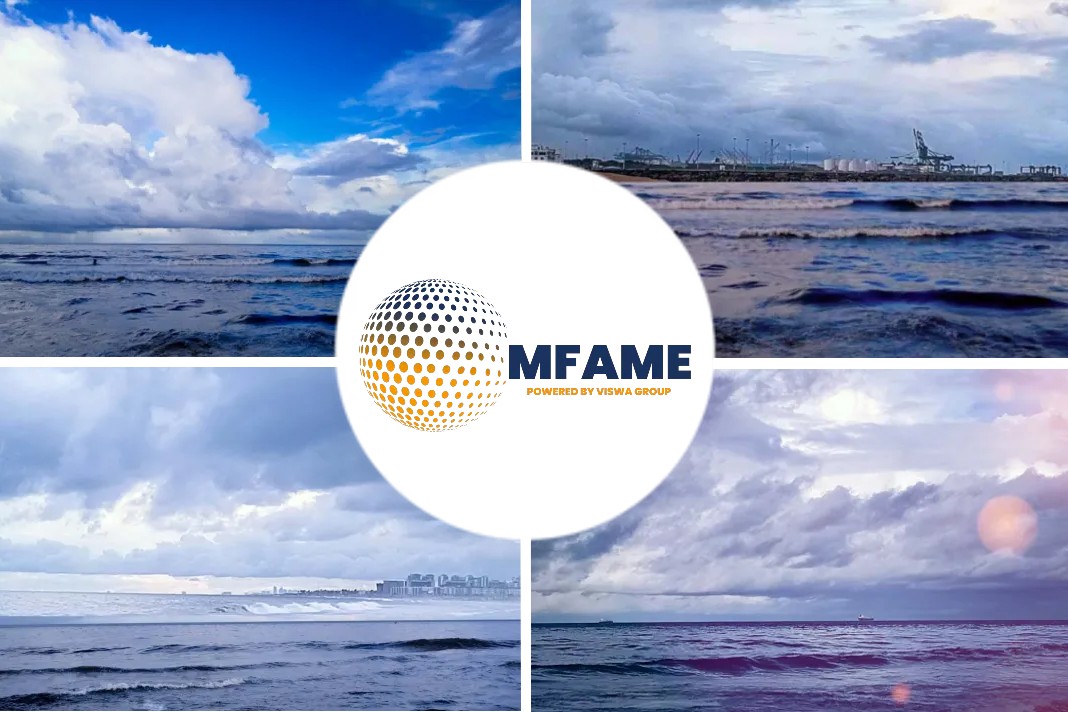- Drax and MOL Drybulk partner to develop wind power technology that will reduce biomass shipping emissions by a fifth
- Newly built vessels will be fitted with MOL’s Wind Challenger hard sail technology, with first ship expected as soon as 2025
- The initiative is part of Drax’s plans to reduce its supply chain emissions and become carbon negative by 2030 using bioenergy with carbon capture and storage (BECCS)
Leading renewable energy company Drax Group and Japanese shipping company MOL Drybulk Ltd. are working together to reduce the emissions and fuel costs associated with shipping biomass by deploying wind power technology on its vessels, says a press release published on their site.
Development of wind-powered vessel
The companies plan to facilitate the development of wind-powered vessels to transport bulk cargoes of Drax’s wood pellets to its customers in Japan, where the biomass is used to generate reliable, renewable energy, which displaces fossil fuels.
The newly built vessels will be fitted with MOL’s Wind Challenger hard sail technology, with the first ship expected to be on the water as soon as 2025.
The initiative is part of Drax’s plans to further reduce supply chain emissions in line with its world-leading ambition to be a carbon negative company by 2030, by using bioenergy with carbon capture and storage (BECCS).
Far-reaching benefits
Drax Group Chief Executive Will Gardiner said:
“MOL Drybulk’s hard sail technology has the potential to transform the maritime industry, cutting emissions and fuel costs and supporting global efforts to address the climate crisis.
“This partnership to advance this crucial new technology will support Drax’s commitment to reduce its own supply chain emissions and could also deliver far-reaching benefits across a number of different sectors that rely on ships to carry goods to customers around the world.”
Under the Memorandum of Understanding (MoU), the two companies will study the feasibility of deploying a first and second generation Environmentally Friendly Bulk Carrier (EFBC) to carry Drax’s biomass.
The first EFBC will use MOL’s automated telescopic hard sail technology – Wind Challenger, and will evaluate the application of other technologies including rotor sails.
The second EFBC aims to at least halve emissions with new vessel designs that use multiple Wind Challenger sails, other low-carbon technologies in development and the use of alternative fuels such as ammonia, liquefied natural gas and synthetic fuels.
Positive impact on transportation
Kazuhiko Kikuchi, President and Representative Director of MOL Drybulk said:
“MOL has been working with our partners to develop the Wind Challenger technology for over a decade, and it’s great to see this become a reality.”
“We are extremely excited to work together with an innovative company such as Drax. This partnership will help us have a positive impact on how wood pellets and other cargoes are transported across the world.”
MOL Drybulk’s work will include developing the technologies that will be used and liaising with the shipyard where the vessel will be built and fitted with the hard sail technology. Drax will work with the ports and terminals in the supply chain on the operational feasibility studies.
The MoU with MOL Drybulk follows Drax’s previous work with the Smart Green Shipping Alliance to look at the potential of fitting innovative sail technology on ships transporting biomass from the US to the UK.
Did you subscribe to our daily Newsletter?
It’s Free! Click here to Subscribe
Source: Drax
















